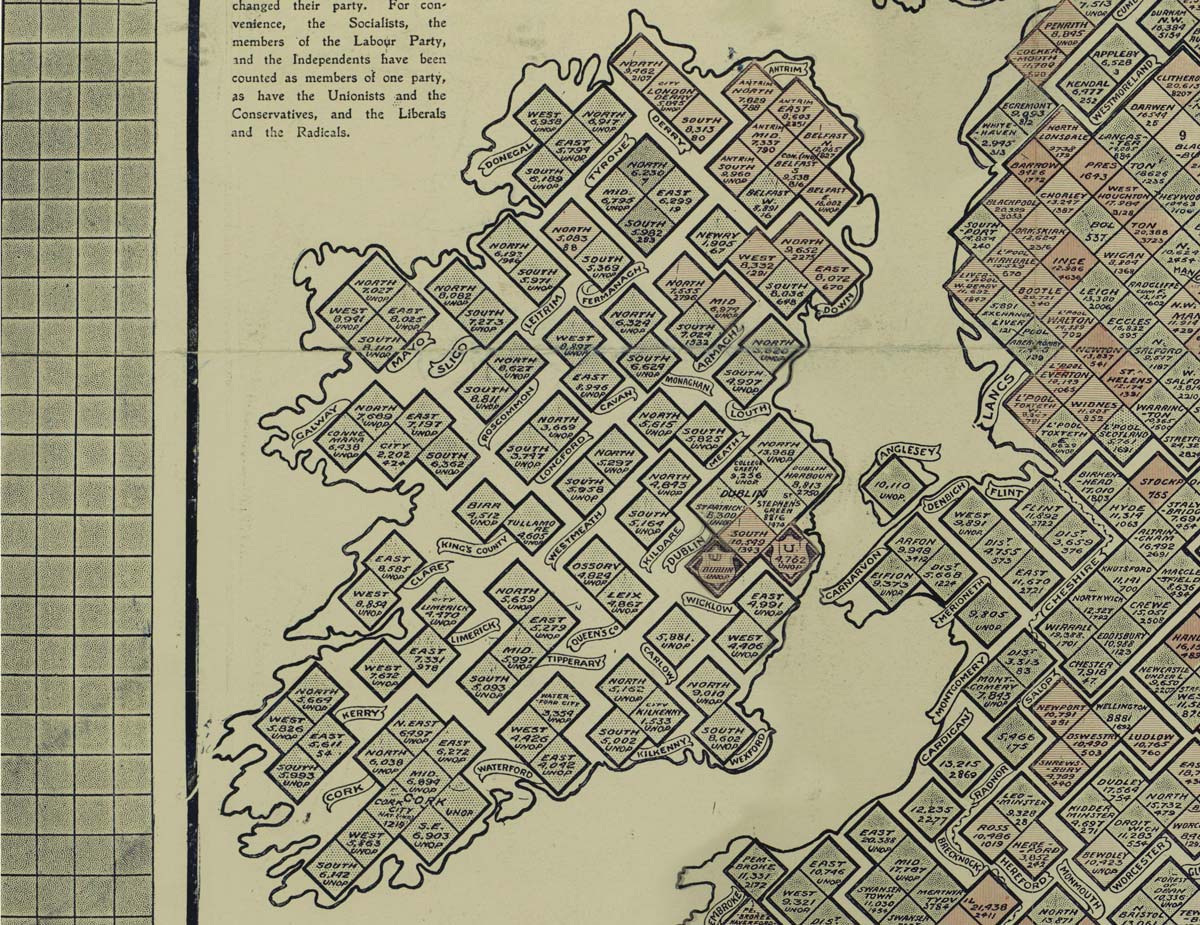Irish Labour Party will not contest election
Tim Healy retires from Irish Parliamentary Party
Dublin, 2 November 1918 - The Irish Labour Party will not contest the forthcoming general election.
At a special session of the Irish Trades Congress and Labour Party held yesterday in Dublin’s Mansion House, a declaration of the National Executive withdrawing all Labour candidates from the coming parliamentary elections was overwhelmingly endorsed by a margin of 96 votes to 23.
Their withdrawal was to make the choice simpler for the electorate as to the form of self-government they desired for the country. The declaration stated that the party hoped that if the people voted for an Irish Republic, it would be a Workers’ Republic, ‘not an imitation of those Republics of Europe and America, where political democracy is but a cloak for capitalist oligarchy’.
Labour asserts that whereas other political parties were prepared to divide the people in the pursuit of power, they alone were ‘prepared to sacrifice party in the interest of the nation in this important crisis’.
However, Thomas Murphy, one of the dissenting voices, urged Labour to show its strength. They had been repeatedly told, since the Act of Union he asserted, that their time had not come. It was time to put an end to such thinking.
Timothy Healy retires
The Irish Parliamentary party is preparing for the coming
electoral contest by selecting its candidates to fight the various
constituencies. Timothy Healy will not be among them. One of the
party’s longest serving members, Healy has decided to
retire. His career includes 38 years as an MP and an often
tempestuous relationship with his party.

An illustration of T.M. Healy from the satirical magazine the Lepracaun, October 1905 (Image: DigitalLibary@Villanova University)
In a letter to William O’Brien, which has been published in the press, Mr Healy says he leaves with no regret and not from either ‘weariness’ or ‘sloth’ or ‘doubt’.
‘I simply want to give new methods a chance, where others have fallen short. I recant nothing; I renounce nothing; I regret nothing; and I have nothing but gratitude for those who undertake, in the new generation, to win for the country all that we have been unable to accomplish in the old.’
[Editor's note: This is an article from Century Ireland, a fortnightly online newspaper, written from the perspective of a journalist 100 years ago, based on news reports of the time.]





















